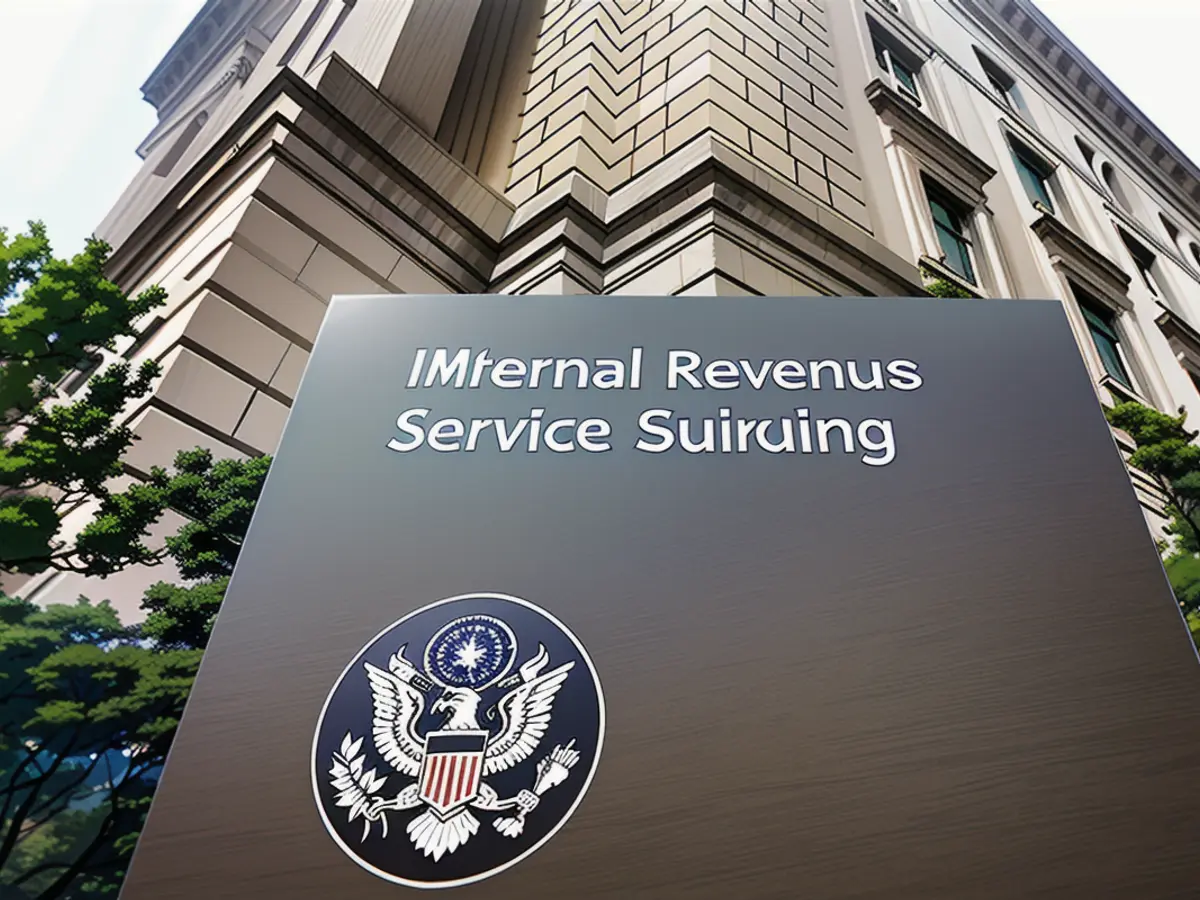IRS seeks to boost audit frequency for affluent taxpayers by 50%
The audit rate of taxpayers making over $10 million is projected to surge by 50%, from 11% in 2019 to 16.5% in 2026.
The IRS intends to triple the audit rates of large corporations with properties exceeding $250 million and boost the audit rates of business partnerships with assets above $10 million by ten times within this six-year period.
Despite these anticipated rises, audit rates will not surpass those from 2010 because the number of filings from big corporations, partnerships, and wealthy individuals has significantly increased and become more intricate, the IRS stated.
The IRS is utilizing the resources offered by the Inflation Reduction Act to upgrade the agency, enhance services for taxpayers, and collect more tax revenue from those who have failed to pay their due. However, Republicans are worried that small businesses and middle-class taxpayers may be subjected to audits. Their attempts to reduce the IRS's funding have been persistent.
IRS Commissioner Danny Werfel has repeatedly affirmed that the agency aspires to protect American citizens earning under $400,000 per year from an increase in audit rates. Concerningly, audit rates of these citizens will not surpass what they were in the explicitly low-year of 2018, Werfel revealed on a recent call with reporters.
"As I've said repeatedly, there is no new wave of audits coming for the middle class or low-income people, or mom-and-pops. That is not part of our plan in any way, shape, or form," Werfel stated.
Enhancing scrutiny with fresh workforce and AI
Inadequate financing led to a decline in IRS audit rates for large corporations and multimillionaires from 2010 to 2021. The agency's staffing within compliance offices shrank by 30% during this ten-year period.
To intensify audits, the IRS is employing the accountants, engineers, economists, data scientists, lawyers, and tax experts needed to examine complex audits.
Since 2022, the IRS has added approximately 11,000 full-time positions, which encompass personnel engaged in audits and those assigned to customer service. The agency aims to add an additional 14,000 full-time employees, likewise acquiring money through the Inflation Reduction Act, by fiscal year 2029, Werfel mentioned on the call.
Amongst these hires will be individuals taking over from retirees and departing personnel. The hirings would increase the total IRS employees to 102,500, Werfel said.
The IRS is also employing funds to enhance its technology. The agency is using AI to aid in choosing which businesses to audit.
The agency's endeavors have to date demonstrated $520 million in revenue collection from millionaireseither ignoring or neglecting to pay their taxes.
Enhancing services for taxpayers
The IRS is exploiting funding from the Inflation Reduction Act to rejuvenate taxpayer services. As a result, the agency handled 1 million more calls this year than it did during the prior tax season.
The agency also welcomed more people in person at Taxpayer Assistance Centers throughout the nation.
Efforts to transform the agency's 1 billion hard copies into digital format are in progress, and improvements have been implemented to the online tool dubbed "Where's My Refund" so that taxpayers can access more real-time information about the status of their tax returns.
Earlier this year, the IRS launched a test version of its in-house tax filing service that allowed Americans to file their tax returns at no cost directly with the IRS. Over 140,000 individuals utilized the program, known as Direct File, to successfully file their tax returns this year. The IRS is yet to make a decision about whether to continue the trial project the next year.
Financial Battles
The Inflation Reduction Act, which passed without a single Republican vote, allocated around $80 billion for the IRS over a 10-year duration.
However, Republicans have pursued several attempts to recover these funds. In a deal to resolve the debt ceiling and avoid a US default in June, Democrats agreed to allow for $20 billion of the Inflation Reduction Act funds to be canceled.
In January, Democrats relinquished an acceleration of the $20 billion rescission in an attempt to secure a full-year federal spending law enacted before a partial government shutdown loomed.
Werfel cautioned on Thursday about the potential repercussions of further IRS funding cuts.
Read also:
- Year of climate records: extreme is the new normal
- Precautionary arrests show Islamist terror threat
- UN vote urges Israel to ceasefire
- SPD rules out budget resolution before the end of the year
The IRS is also looking to enhance its use of artificial intelligence to aid in the selection of businesses for audits.
Despite the increased resources and hiring of new personnel, the IRS Commissioner has assured that middle-class and low-income individuals, including mom-and-pop businesses, will not see an increase in audit rates.
Source: edition.cnn.com





